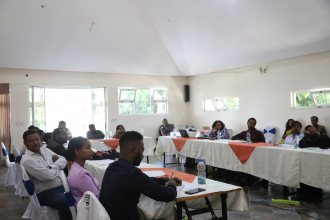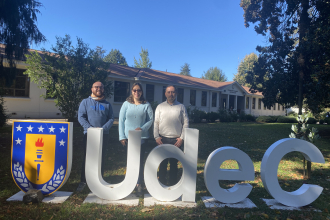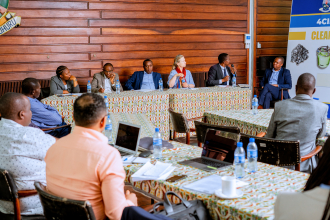
Nature-based solutions promote human well-being and ecosystem benefits
How can Nature-based solutions help reduce climate risk in developing regions? And can these solutions be equitable for the communities involved? A research team at EfD South Africa and the Natural…

Richard Mulwa joins the Climate Strategies team
Richard Mulwa, Center Director of EfD Kenya, was admitted as a member of the Climate Strategies team in April 2023. Climate Strategies is an international not-for-profit research network addressing…
Special Issue on “Challenges for the development of Latin America in the Anthropocene: current research in environmental economics”
Environment and Development Economics seeks to publish a special issue on challenges for the development of Latin America in the Anthropocene: current research in environmental economics. The aim of…

EfD Ethiopia delivered training for journalists on the benefits of clean cooking stoves
Abebe D. Beyene, a senior research fellow at ECRC, conducted a training workshop on the economic and social benefits of clean cooking stoves for media professionals. It was organized by the Ethiopian…

EfD Chile got a high recognition within the University of Concepción
The University of Concepción (UdeC), the host of NENRE EfD Chile, promoted the center to a “Research Program in the Economics of Natural Resources and Environment” on April 17th. This provided…

More knowledge is needed to foster a clean cooking transition in Tanzania
Researchers, policymakers, and technicians in the energy industry sector agree that more efforts need to be directed to the community on the importance of clean cooking technology. This is necessary…
The endogenous formation of common pool resource coalitions
We present the results of framed field (lab-in-field) experiments designed to investigate the endogenous formation of common pool resource (CPR) coalitions when the resource is co-defended with costly monitoring by coalition members and sanctions for encroachment imposed by the government. The experiments were conducted with fishers who were members of Chile's territorial use rights fisheries (TURFs) and in the lab with Chilean university students. Consistent with theoretical predictions, the fishers frequently formed CPR coalitions, even when they could not deter outsider poaching.

SIANI Global Annual Meeting 2023
Two years have passed since the UN Food System Summit, and it is time for the first global stocktaking on the progress toward sustainable and equal agrifood systems. This is the time to assess what…